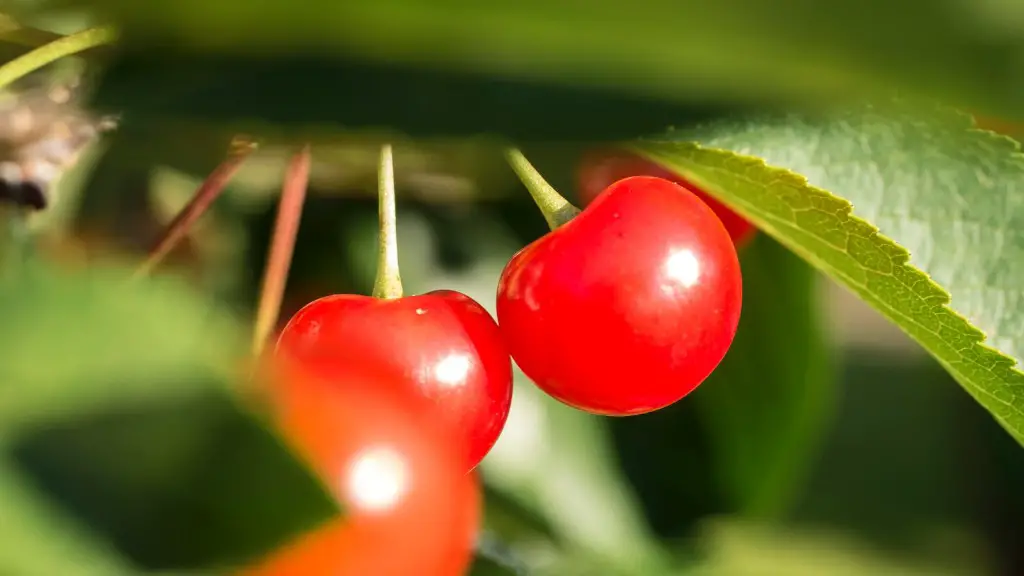Nutrients
Avocado trees require a nutrient-rich soil to thrive. Ideal soil nutrients should contain essential minerals such as nitrogen, phosphorus, and potassium. Clay, sand, and silt soils should all be aerated with organic matter such as compost, manure, and mulch to produce the best growth and health for avocado trees. Soils that are too rich in sand or too acidic can be amended with lime or gypsum. This soil amendment can help increase pH and fertility levels.
Soil Testing
It is essential to test your soil before attempting to plant an avocado tree. Different varieties require different soil types and pH levels, so testing the soil parameters is important. Furthermore, soil testing can help you identify any deficiencies your soil may have. Knowing what small improvements your soil needs can help you create a nurturing environment for your avocado tree.
Water
Avocado trees need plenty of water to thrive in any soil. A steady and moderate water schedule can help promote deep root development and healthy foliage. During the first year, it is important to keep your avocado tree consistently moist. However, over-watering can lead to the occurrence of root rot and the death of the tree. It is important to water twice each week during the warmer months and only once a week during the colder months to prevent over-watering.
Climate
Avocado trees require warm temperatures to flourish. They can tolerate temperatures as low as 20 degrees Fahrenheit, but any colder can potentially lead to cold damage or even the death of the tree. Generally, the tree can withstand temperatures as high as 115 degrees Fahrenheit, which is why they are ideal for the warmer climate in the southwestern United States.
Pruning and New Growth
It is important to regularly prune your avocado tree to promote new growth and maintain its overall health. This will also help to manage its size and width. New growth benefits from the pruning in terms of increased vegetative cover, which will protect the tree from cold temperatures and pests.
Pest Control
Pest control is essential for an avocado tree to thrive. Regularly checking for pests and using the appropriate pest control methods is essential to ensure the longevity of your avocado tree. Common pests include mites, scale, and thrips, all of which can damage the foliage of the tree and deplete its resources.
Fertilization
Fertilization is also important for avocado trees. Fertilizers should be applied twice a year, preferably in the spring and autumn, to ensure that the tree receives the necessary nutrients. Water-soluble, organic fertilizers are often preferred over chemical-based products since they are more gentle on the foliage of the tree.
Compost Addition
Adding a 3-4-inch layer of compost over the surface of the soil can help to improve the health of your avocado tree. Compost is rich in organic matter and is packed with beneficialmicroorganisms, which can improve soil fertility and also help to suppress weeds. It can also help to keep the soil from becoming compact, which can limit root growth.
Mulching
Mulching is another effective way to improve your avocado tree’s environment. Mulch can help to hold in moisture and regulate temperatures, both of which are essential for avocado tree health. Mulch should be applied in late fall and early spring to ensure that the tree has the best possible conditions for growth.
Drainage
One of the most important things to consider when looking after an avocado tree is drainage. Make sure that the soil you have isn’t too compact or too wet, as this will limit the amount of oxygen the tree’s roots can get. You can easily check the drainage of your soil by digging a small hole, filling it with water, and then seeing how long the water takes to drain away. If it takes longer than 5-10 minutes, then your soil likely has poor drainage and should be amended with organic matter or aerate.
Root Management
To ensure the health of your avocado tree, it is essential to manage its roots. Maintenance of avocado trees requires regular cultivation of the soil around the roots of the tree to check for any pests or diseases that may be present. This can also help to generate new root growth. Additionally, it can help to reduce the risk of shallow root growth, which often occurs when the soil is too dense.
Soil pH
The soil pH should be neutral to slightly acidic for avocado trees. A pH between 6.0 and 6.5 is ideal for the tree to thrive. If the soil has a higher pH than this range, then it can be amended with sulfur. If the pH is too low, then it is best to add garden lime to raise it to the correct level.
Fungal Diseases
Fungal diseases are a common issue when it comes to avocado trees. The most common issue is root rot, which can cause the roots to become damaged or even die. It is important to keep an eye out for any signs of fungal diseases, such as discoloration of the leaves or wilting of the foliage. If a fungal disease is present, then it is important to take the appropriate measures to treat it as quickly as possible in order to ensure the health of the tree.


